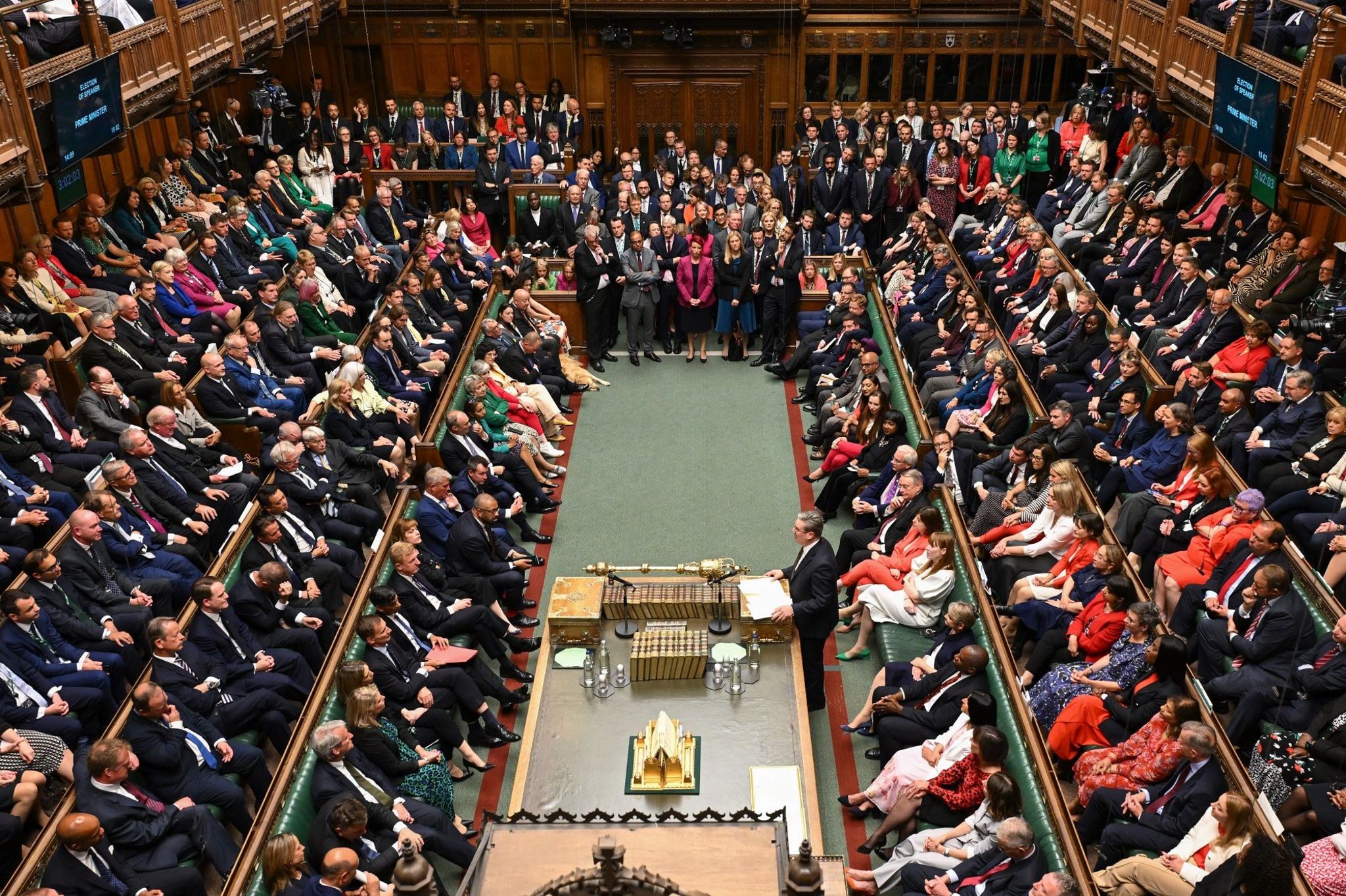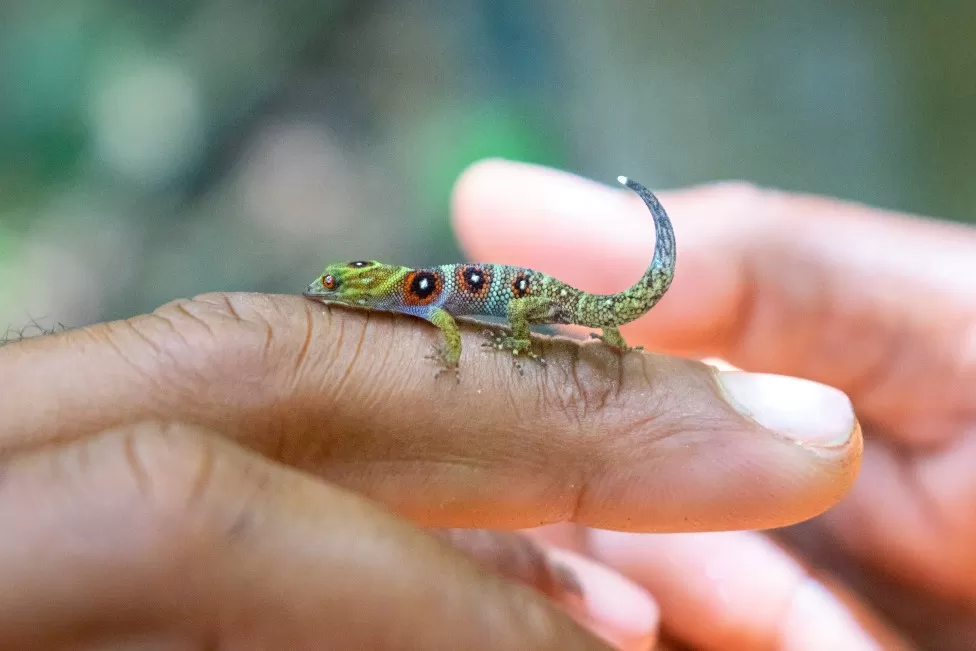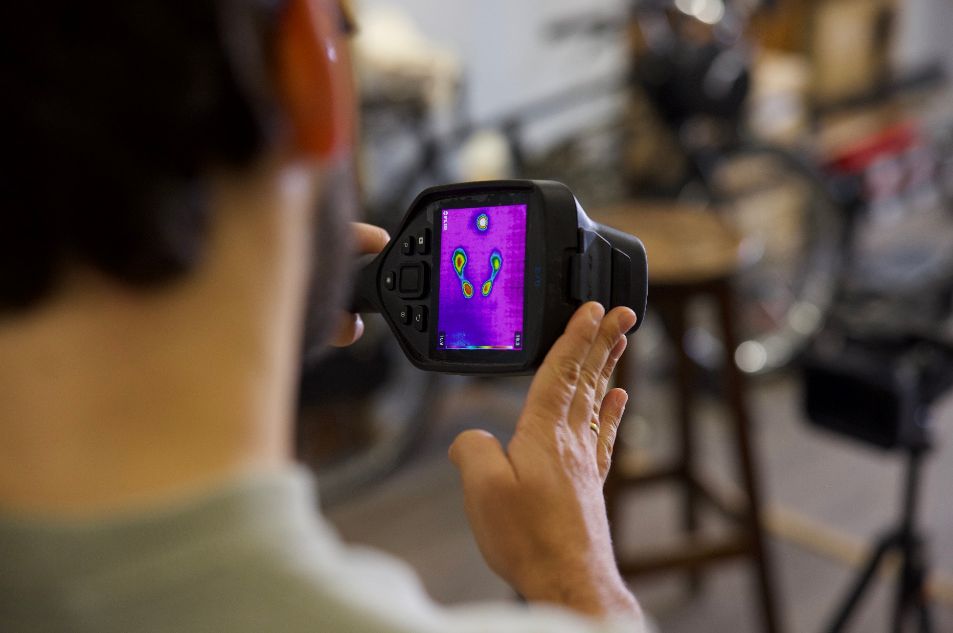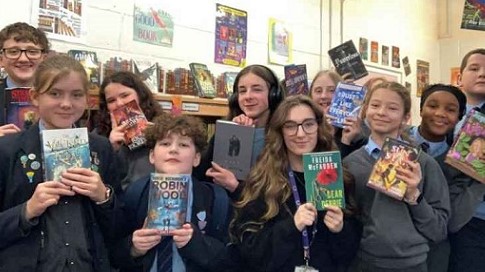Dressed in camouflage and combats and with self-defence training under their belts, the Union Island wardens look prepped for battle.
They are in fact on a mission to protect one of the world's tiniest species - one so rare it exists in just 50 hectares (123 acres) in a remote corner of one of the smallest islands in the Caribbean.
The Union Island gecko is the size of a paperclip, critically endangered and facing an insidious enemy - poachers.
Following its official discovery in 2005, the unique creature quickly became a coveted curio by collectors enthralled by its gem-like markings, earning it the dubious distinction of the most trafficked reptile in the Eastern Caribbean. That is at least until Union islanders got involved. Since 2017, local residents trained as wardens have been patrolling the dense virgin forest of this location in St Vincent and the Grenadines, on call 24/7 in the event of an intruder.
Their work, carried out in sync with the government's forestry department and international conservationists including Fauna and Flora International (FFI), has been credited with an 80% increase in population. A recent survey indicated numbers of the gecko soared from 10,000 in 2018 to around 18,000 now - outnumbering the island's human population six-fold.
Community involvement has been key, says Glenroy Gaymes, the government's chief wildlife officer. "A lot of people didn't even know the gecko existed," Mr Gaymes says. "We went house to house, held roadside meetings and school programmes to sensitise people.
“We had to go to the forest to capture one and bring it to the consultations so people knew what it was. Everyone was wowed - they were expecting something much bigger.
"It's just an inch-and-a-half long, and so pretty people were in awe." Roxanne Froget became Union Island's first female warden in February 2018.
"When I heard about the gecko only being found on Union Island it was a wow for me. It was amazing to see it for the first time with all its colours," she recalls. The geckos slowly change hue when brought into the light from dark brown to multi-coloured. A nature lover, Ms Froget was keen to get involved with the project.
"We patrol the forest on a daily basis and are on call around the clock. We are protecting everything - the fauna, the flora, even the stones which people used to use for construction as they are part of the geckos' habitat. The area has to be totally untouched," she explains.
"I love being in nature and listening to the sounds of the birds”, the mother-of-two said. “I look forward to going to work every day. My nine-year-old son loves the forest too. I tell him all about the gecko and how I help protect it.
“I feel so proud to be part of this work - and it's all happening on my island, my home." In addition to active patrol training and self-defence skills - courtesy of Mr Gaymes who is a fourth degree black belt in taekwondo - wardens are taught about the many intriguing species that call the forest home and the traditional uses for medicinal plants so that they can pass their knowledge on to local schoolchildren and visitors.
What Union Island lacks in monetary wealth it makes up for in rich biodiversity. Since the gecko project began, the team has extended its work to protect a number of other endemic creatures too, like the pink rhino iguana, also under threat from poachers. Both reptiles' rarity and striking colours have been their downfall.
"Most of the collectors are naturalists; they want the geckos because they are different. They want to learn how to breed them and be the first to learn about them so they can show off to their peers," explains FFI's Caribbean programme manager Isabel Vique. Her collectors come from as far as the US and Europe and some arrive by yacht.
"But since we've been on the ground, there has been an 80% reduction in the number of geckos advertised online." Poachers previously took advantage of Union islanders' friendly nature to locate the geckos' habitat.
"They would come to the island pretending to be tourists and go around asking the locals where they can see them," Ms Vique says, adding: "We have been raising awareness so now people won't tell you where to find the gecko, they will point you to the police station instead."
The gecko has been protected by international treaty CITES since 2019, thanks to the government's efforts, affording it the highest level of protection. Poachers face a hefty fine and a possible prison sentence if caught. “As one of the world's last remaining tropical dry forests, the geckos' Chatham Bay home is a kind of living laboratory for West Indies wildlife", says FFI's project manager James Crockett.
"Caribbean dry forest is one of the most endangered habitats on the planet. Very few are undisturbed like Chatham Bay," he said. And that makes the project all the more valuable.
"I believe the Union Island gecko is the perfect representative mascot for the island to be known by in the wider world - it's small, perfect and beautiful," Mr Crockett adds. Roseman Adams, co-founder of local NGO the Union Island Environmental Alliance which has been at the forefront of the gecko conservation endeavours, agrees.
"Some in government still believe the area is good for a major tourism development. We have been trying to communicate the value of having this healthy, undisturbed dry forest in which we are finding more and more species new to the world," he says. "If we lose that opportunity to find and preserve them, they will be lost forever."
For Mr Adams, the gecko has a special symbolism.
"The fact that the gecko has survived for thousands of years means it's very resilient. When it raises its tail, it looks proud," he says. "This species represents us as Unionites - we may be small, but we are proud and resilient."











